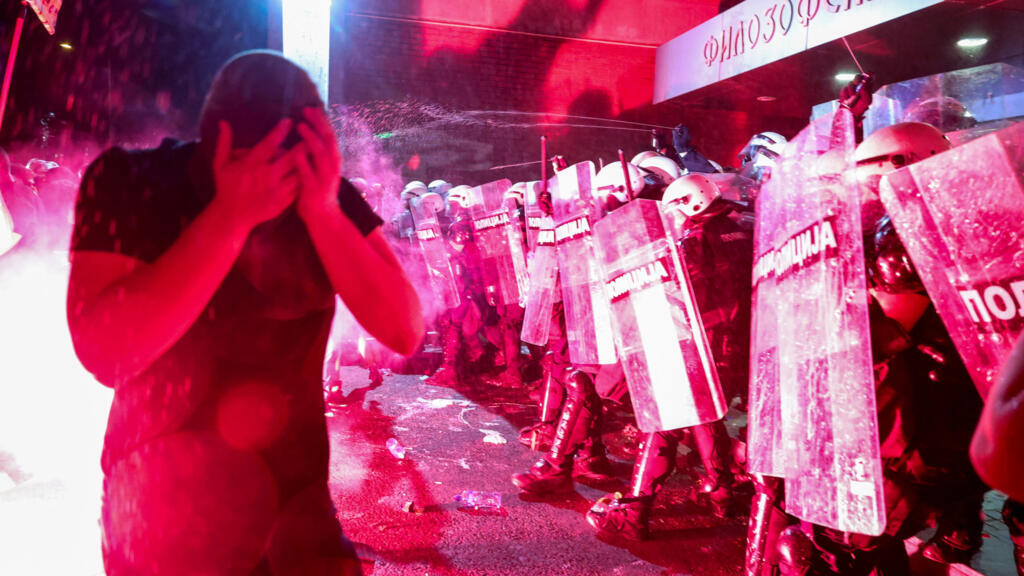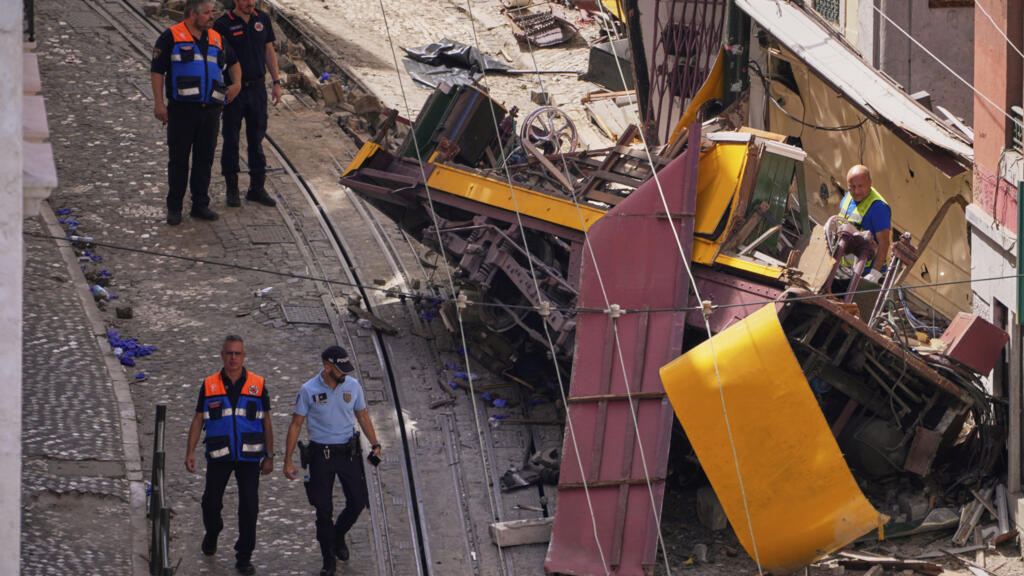On Friday night, in the northern Serbian city of Novi Sad, a significant protest erupted as demonstrators took to the streets demanding early elections and the resignation of President Aleksandar Vucic. The situation escalated quickly, leading to confrontations between the protesters and riot police. In response to the growing unrest, baton-wielding officers deployed tear gas to disperse the crowd, signaling a dramatic and tense atmosphere during the gathering.
The protest was part of a larger wave of discontent among the Serbian population, which has been fueled by widespread dissatisfaction with the current administration. Many citizens are calling for immediate political changes, expressing their frustration with President Vucic's government, which they believe has failed to address pressing economic and social issues. The protesters voiced their demands for a more democratic political environment, with several groups advocating for reforms that would ensure fairer electoral processes.
As tensions rose in Novi Sad, the police charged at the group of demonstrators, leading to chaotic scenes in the city center. Eyewitness accounts described the atmosphere as fraught with anxiety, as the clash between protestors and law enforcement unfolded. Many participants sought to voice their aspirations for change, holding banners and chanting slogans that criticized the government. However, the police's tactical response using tear gas and batons served to highlight the deep divisions between the authorities and sections of the populace.
The protests in Novi Sad are not isolated incidents; they reflect a growing discontent across Serbia. Various cities have witnessed similar demonstrations over the past few months, illustrating a broader sentiment of frustration among citizens. The calls for early elections have been a recurring theme in these protests, as many people believe that the current political framework does not adequately represent their interests.
Amidst the unrest, social media has played a critical role in mobilizing supporters and sharing real-time updates about the protests. The ability to communicate rapidly has allowed protesters to organize effectively, drawing attention to their cause and rallying new participants. This increased visibility has prompted both local and international observers to pay closer attention to the unfolding events in Serbia.
The involvement of riot police indicates the government's apprehension regarding the potential for unrest to escalate further. In previous protests, the government has shown a strong willingness to maintain order, often leading to clashes with protesters. This strategy has sparked debates regarding civil liberties and the right to assemble in peaceful protest, as critics argue that heavy-handed responses from law enforcement can exacerbate tensions and provoke further unrest.
In conclusion, the protests in Novi Sad highlight an ongoing struggle in Serbia over political accountability and democratic governance. As citizens continue to demand change, the government faces increasing pressure to respond to public grievances. The events of Friday night illustrate not only the immediate challenges of maintaining order but also the broader implications of ongoing civil discontent in the country.












